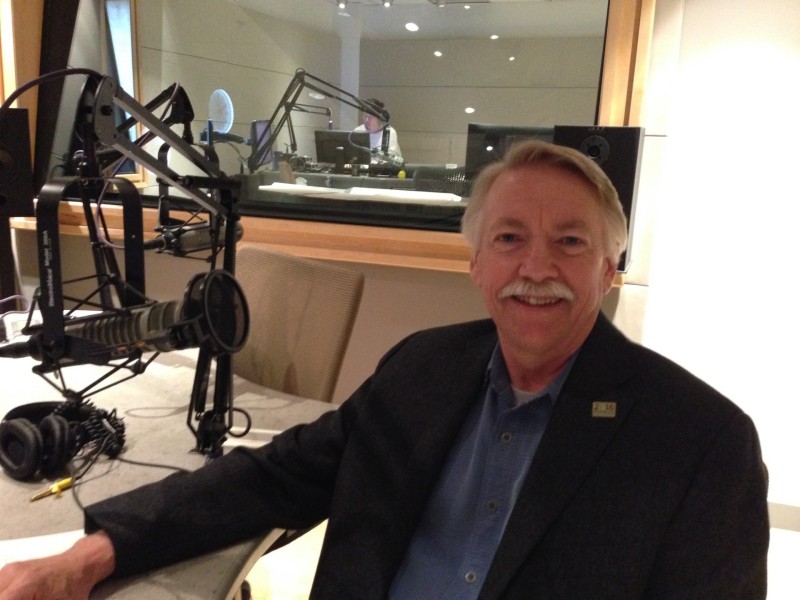In the case of dogs in Golden Gate, dogs off-leash specifically, let me just put some larger perspective on this. There are 407 units to the NPS, and there are quite a few national recreation areas. Most of the NRAs, as we call them. came in (around) the '70s. So you have Grand Canyon, Lake Mead, Cape Hatteras National Seashore, Golden Gate Gateway, a number of these areas. And let me just be very clear about how Congress views these, how the laws are established. The title does not infer any lesser standard of management than a national park. Congress has been very clear about that, about the system, the National Park System, are to be managed to a high standard. So when [GGNRA] was established, there was nothing that said we were to manage Golden Gate any differently than other national park units or other national recreation areas. Golden Gate is the only unit of the NPS that is at all considering any off-leash dog use."
JJ: So this would be out of the question everywhere else.
Jarvis: "That’s right. We don't even allow dogs on leash in most of the national park units. Your dog stays in the car, or doesn’t come on the trip. But you cannot walk your dog on a leash in Yellowstone, or in Gateway, or the Grand Canyon or anywhere else. So, that’s our starting point.
But recognizing that we are in an urban park -- and we do have a pattern of use here in Golden Gate that we need to recognize and honor in some way -- but we need to balance it with natural resource protection, conservation and other uses. There are other people here that want to come visit, whether they are local or from Europe or Japan or China, that don’t necessarily want to have that experience with a dog off leash. So what the park is doing is going through a dog management plan and a draft rule to establish specific areas within Golden Gate National Recreation Area where some off-leash dog use will be allowed."
Another caller named Sally asked Jarvis a pointed question about the NPS's responsiveness to local interests:
Sally: "Hi, I’m one of the people from a group called Save Our Recreation that was in Washington, D.C., earlier this week talking with members of Congress about the problems we’re having in the Bay Area with the NPS. And one of the things that really surprised me the most about it was that every person we talked to, Democrat or Republican, talked about having problems in dealing with the park service. That basically, they don’t listen to people living around the parks. They take public comment because they’re required to, but just go ahead and do whatever they want. And it was universal. Everybody had this experience, and they said they had calls constantly from people who were complaining about the same things happening. And I was just kind of wondering, Mr. Jarvis, what are you doing to change this culture of inertia, arrogance and unaccountability that seems to permeate the Park Service?"
JJ: "Before you answer, there's also a report from Government Accountability Office about customer service in various parts. It said that the NPS needed work. What kinds of things are you and your team doing to improve these concerns?"
Jarvis: "Well, I’m going to just start with just sort of disagreeing with Sally upfront. As I mentioned, the NPS hosted 292 million visitors last year -- that is 30 million more than all of the Disney theme parks, all of baseball, all of football, all of basketball, all of hockey, and all of NASCAR. 30 million more than all of those combined. And when we run our social science surveys, satisfaction is in the 98th percentile. So I would say, across America, we're doing a fantastic job in terms of providing a public service. I also testified in front of Congress last week in two different hearings, and it was stated by Republicans that we are the most popular agency in all of federal government and have bipartisan support.
"What I do want to say about the issue is the question of local communities and their views of the NPS versus the national view. And the NPS has a responsibility to provide these places for all Americans, not just for the local communities. So when we do public meetings, the local communities and local residents have more opportunity to provide comment about how an individual park is managed and what their particular interest may be about access, recreation, or whatever, and then the park service has the responsibility of balancing that with our responsibility to provide these places for all Americans, even if they don't live next door.
"And that can be interpreted as that we're not listening. But if we were to manage every unit of the NPS solely for the local communities, it would not be a national system, it would be a regional system. That’s what regional parks, city parks, are all about. We are a part of a national system that I can’t manage Yellowstone just for the people who live in Cody, nor can we manage Golden Gate just for the people who live in San Francisco."
You can listen to the entire interview with Jarvis here:

